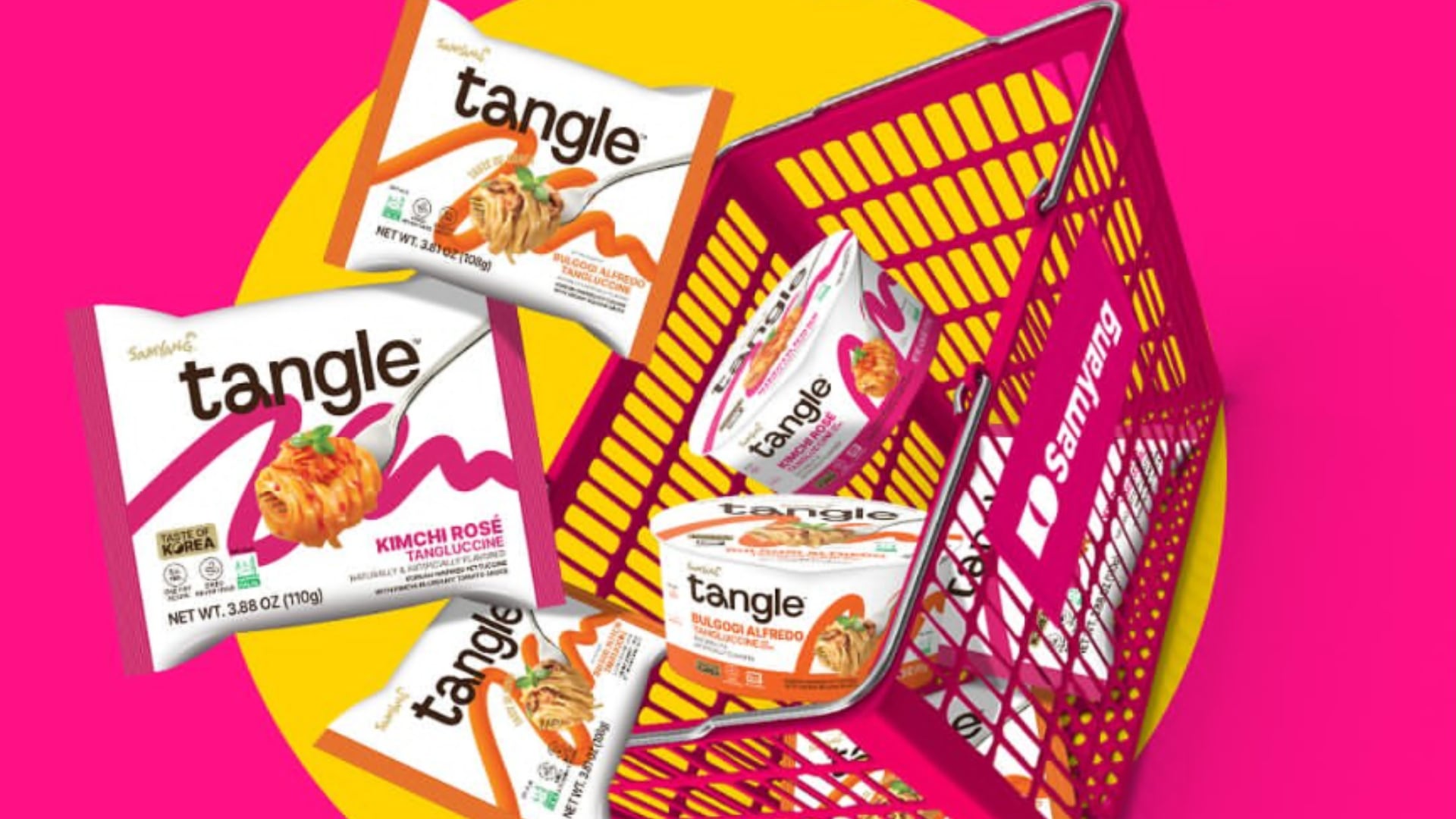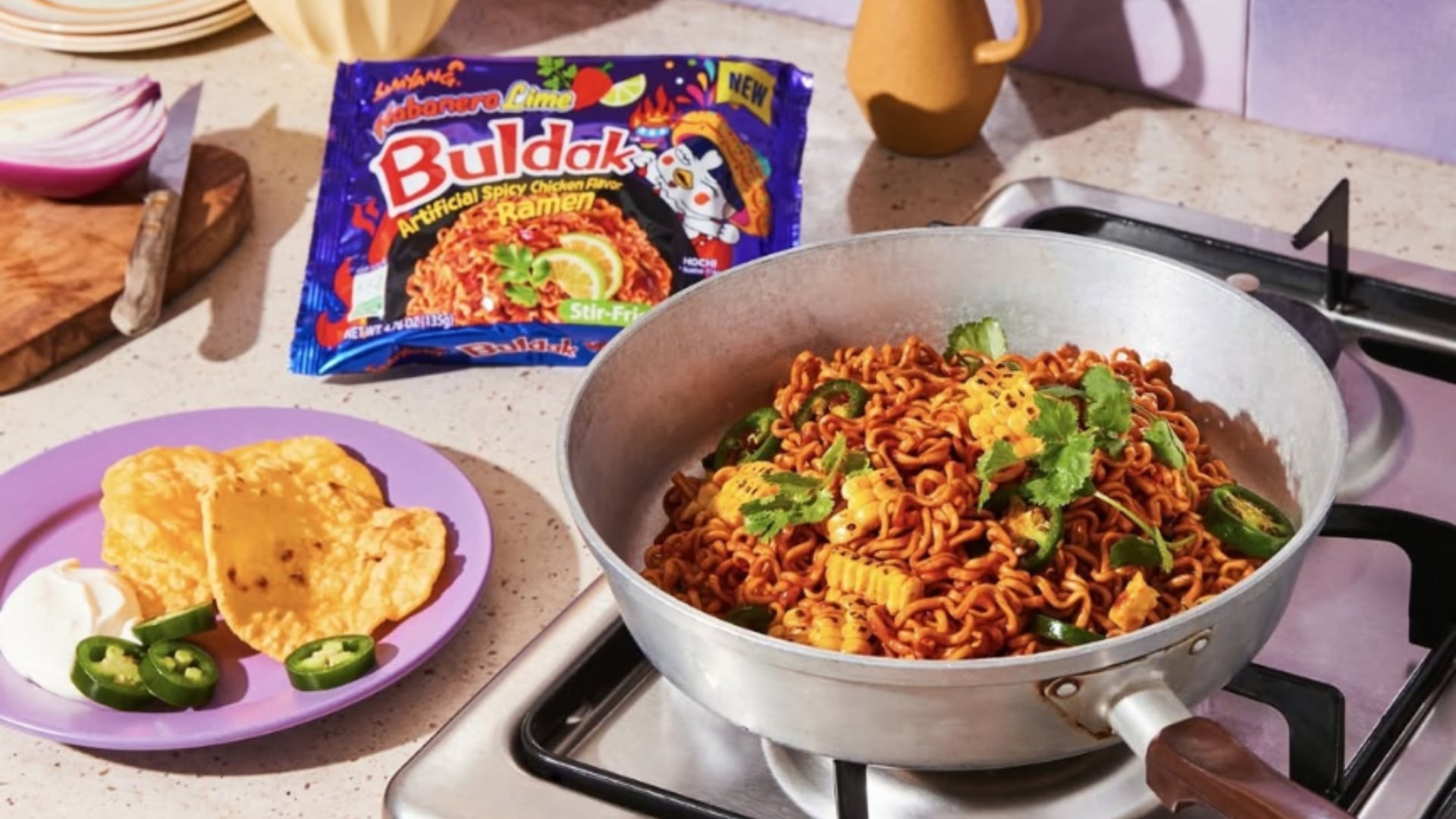Korea’s pioneering instant noodle brand Samyang Foods has reduced the carbon footprint of its Buldak Ramen with new rooftop solar power system at its Miryang production complex – a central hub for Samyang’s global exports.
There are more than 1,100 solar photovoltaic (PV) modules across the Miryang complex. The system is now generating over 986MWh of clean electricity annually, covering approximately 7% of the site’s total power demand and avoiding an estimated 453 tonnes of CO₂ emissions per year.
This marks a major step in Samyang’s roadmap to reach net-zero emissions by 2050.
What are solar photovoltaic (PV) modules?
Solar PV modules are devices that convert sunlight directly into electricity. They are made up of multiple solar cells, usually composed of silicon, that generate direct current (DC) electricity when exposed to sunlight. These modules are commonly used in solar panels installed on rooftops or solar farms to produce renewable energy.
1) Push towards eco-friendly products
“The new plant is our most advanced facility – leading in equipment, workforce, and environmental efficiency. It goes beyond a smart factory to represent a next-generation production model aligned with global standards and long-term sustainability,” said Jungsoo Kim, Vice Chairperson of Samyang Foods.
“We’ve also reduced the carbon footprint of each Buldak Ramen pack to around 0.3kg of CO₂. Through the reduction of active emissions, we’re making tangible progress toward carbon neutrality and a healthier planet.”
The successful completion of this project aligns with Korea’s 11th Basic Plan for Long-Term Electricity Supply and Demand, which targets 21.7% renewable energy in the national mix by 2030.
In addition to emissions reduction, Samyang is also exploring more sustainable packaging solutions.
In 2023, Samyang Foods received the Chairman’s Award from the Korea Packaging Organization Federation.
The award recognised its joint research with LG Chemical which developed packaging solutions for multi-packed ramen using Biaxially Oriented Polyethylene HDPE film – an alternative that is stronger than traditional polyethylene films.
This approach involved transitioning from a dual-layer to a single-layer packaging material, resulting in reduced plastic usage and improved recyclability.
These efforts complement Samyang’s expansion into nutrition-driven products as part of its broader sustainability strategy.
2) ‘Foodcare’ – health and nutrition focus
Health and nutrition form the cornerstone of Samyang’s ‘Foodcare’ strategy.
Its Pulse Lab snack range – previously Jack & Pulse – was rebranded in July to reinforce its focus on providing plant-based nutrition. The range uses natural ingredients including chickpeas and cashew nuts to provide fibre, which supports gut health.
The firm also offers dairy protein through its Ornic brand, which uses organic milk sourced from Samyang Roundhill, a subsidiary of Samyang Foods that manages the agricultural aspects of the firm’s operations.
According to Samyang, each 100g yoghurt serving contains 11g of protein.
Other R&D initiatives include developing noodles from plant-based alternatives, and providing low-sodium, low-fat, and low-sugar options for consumers.

The firm also initiated an international academic-industry collaboration with Wageningen University & Research (WUR) in the Netherlands.
The project aims to analyse the digestibility, food matrix, and metabolic responses of future food processing methods and to develop consumer communication strategies based on these findings.
The research is set to continue until 2027 and involves participation from global food companies Danone and Ferrero.
3) People and community
Samyang is also strengthening internal capabilities through job training programmes in food safety, production, and R&D.
Staff are encouraged to share their expertise across departments, fostering cross-functional collaboration and contributing to overall growth and development.
The firm holds its suppliers to the same standards , viewing this as key to building a sustainable supply chain.
Potential partners are assessed for their commitment to quality, safety, and R&D abilities.
Appointed suppliers are subject to regular evaluations based on a set of criteria, which includes sustainability elements such as ethics and environmental efforts.





